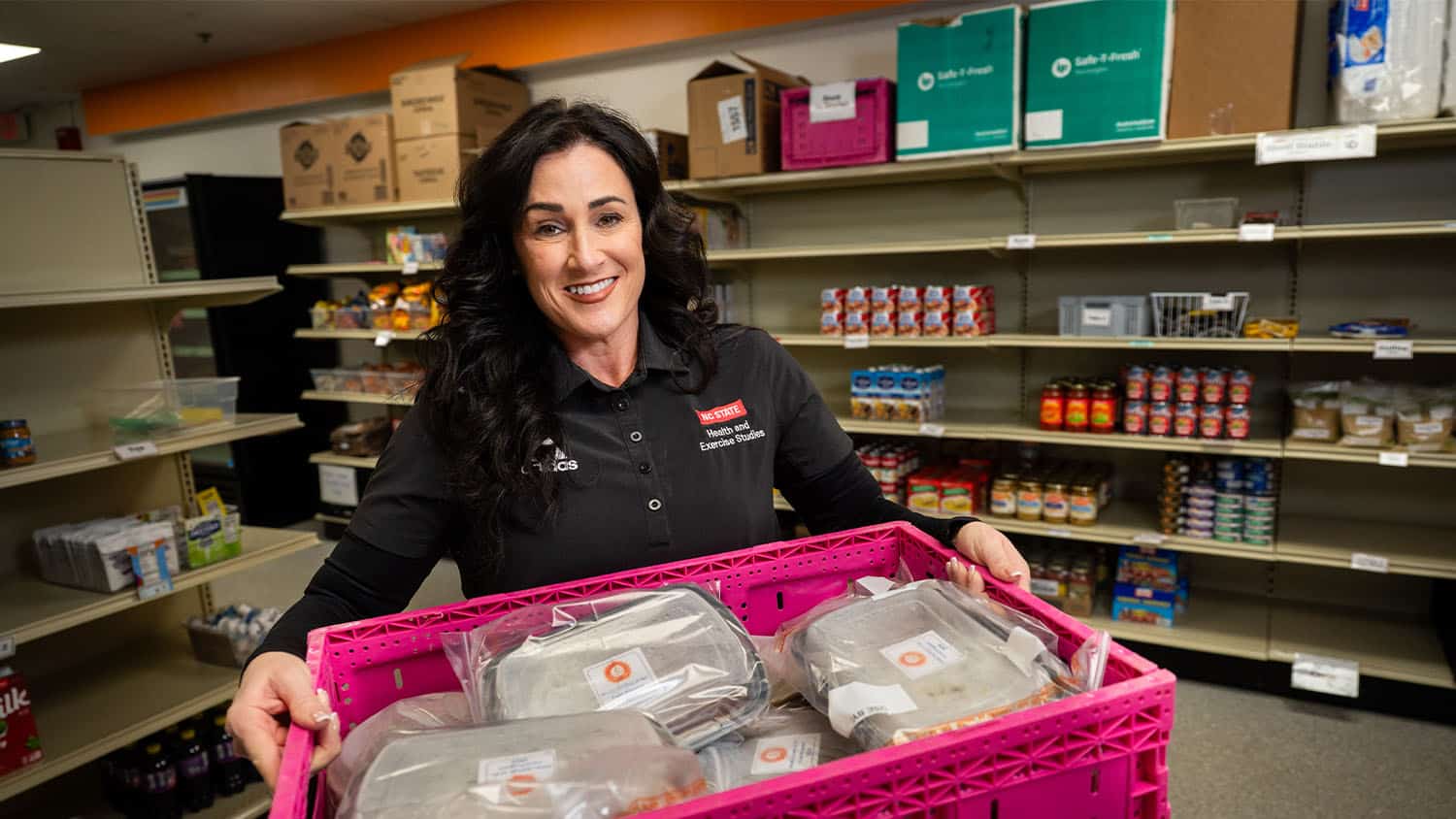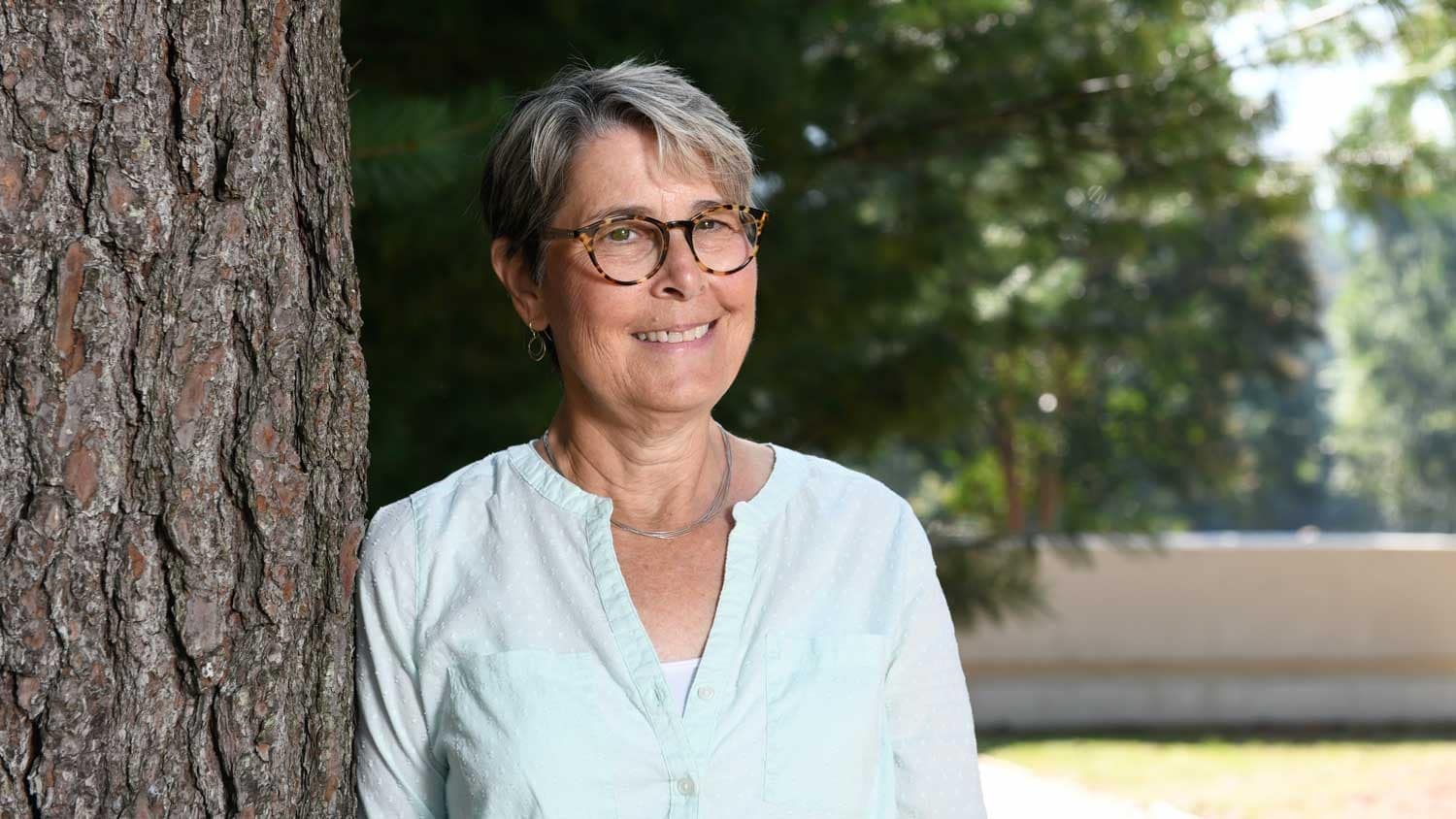Lorelei Jones has loved everything about NC State since she was a young girl growing up in eastern North Carolina’s Lenoir County.
Back then, she participated in health, foods and nutrition and fashion review projects as part of 4-H. She visited the university campus each summer as a teenager to attend the state 4-H Congress. Those experiences boosted Jones’ confidence while feeding her passion for service to others–and even helped direct her to her current career at NC State.
Today, Jones continues to be committed to the land-grant mission as NC State’s research, teaching and extension programs improve the lives of North Carolinians. Since 2004, she has served as coordinator of the Expanded Food and Nutrition Education Program (EFNEP), a federally funded program operated in North Carolina through Cooperative Extension within the College of Agriculture and Life Sciences’ Department of Youth, Family, and Community Sciences. Jones describes her department as a highly professional and talented group.
“The professors and specialists are passionate about improving the lives of families and youth, and their scholarly work contributes to the body of research in the field,” she said. “Our work has great impact on the big issues facing families and youth today, but it often goes unnoticed because the limited-resource population that many of our programs serve doesn’t always have a strong political voice.”
Also since 2004, Jones has supported the work of her department and related outreach programs through payroll deduction and outright gifts to NC State funds and endowments. She feels fortunate to be in a position to help people improve their lives, in any way that she can.
“The mission of our department aligns perfectly with my personal mission,” she said.
The Department of Youth, Family and Community Sciences aims to improve the health and well-being of youth, families and their communities through applied research, teaching and extension activities. As the technical and content support for Cooperative Extension, the department’s faculty and staff develop, deliver and evaluate research-based community education programs in the areas of health and nutrition, local foods, family relationships, aging and energy conservation. Outreach is conducted through schools, with military youth, at community centers and within faith communities; it involves not only direct program delivery, but effective engagement and management of volunteers to support program goals.
Health greatly influences economic prosperity. EFNEP provides hands-on programs focused on nutrition education, improved family nutrition on limited resources, food resource management and food safety at home. It supports thousands of families and youth across North Carolina who are most at risk for leading unhealthy lives because of poverty and other challenges, encouraging them to set goals and change their nutrition and health behaviors for the better.
“The improvements that they make as a result of learning new skills and gaining knowledge through EFNEP often serve as the spark that propels their lives forward — leading them to make big changes in other areas of their lives, such as returning to school or applying for a new job,” Jones said. “My goal for giving to NC State is to support this work and ensure its continuation.”
The limited public resources available to conduct programs such as EFNEP — which began in 1969 — have steadily dwindled in recent years, she added, and donors help bridge the gap. For example, the EFNEP endowment enhances outreach to needy families and youth through awards to support innovative programming. And in 2013 North Carolina hosted representatives from 13 universities at a multi-state nutrition assistants’ conference, which had begun in 2007 with only three participating universities. Private funding assured that national-level speakers could be secured, making the conference a very valuable professional development and education event.
Eventually, a growing endowment could allow EFNEP to expand beyond the 40 to 50 North Carolina counties it typically serves.
“With private funds, if you think it, you can do it,” said Jones, who also has served on the NC Family and Consumer Sciences Foundation Board.
She believes strongly in the mission of her program, department, college and university. Why would she encourage NC State staff and faculty members to invest in the institution?
“There’s good work happening at NC State,” Jones said. “That work impacts lives, both now and in the future.”
- Categories:



